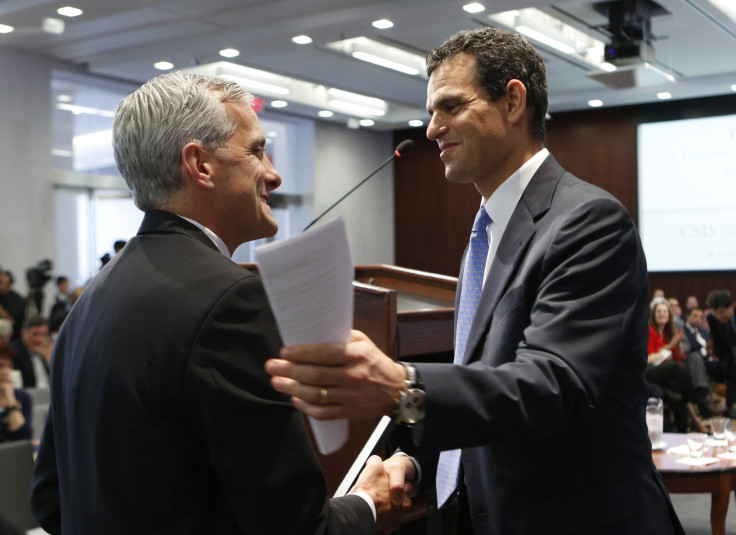The U.S. Treasury Department Is Sharing Bank Data With Intelligence Agencies, But With Limits

Even though the U.S. Treasury Department allows intelligence agencies such as the CIA and NSA to access Americans’ banking information, there are a few limits.
At the end of last week, the Treasury described how it does give some bulk information to the National Counterterrorism Center (NCTC), but that it requires agencies to make “best efforts” to tap information only for specific cases and destroy any irrelevant data obtained in error, according to a Bloomberg analysis of a document detailing a 2010 agreement between the Treasury’s Financial Crimes Enforcement Network and the NCTC, which coordinates government anti-terrorism intelligence efforts.
“Make no mistake, financial intelligence is essential to what we do. We cannot map illicit financial networks or identify targets for actions without financial intelligence,” David Cohen, Under Secretary for Terrorism and Financial Intelligence (TFI) at the Treasury, said on June 2, citing feats that include stemming the flow of funds to Al-Qaeda and imposing economic pressure on Iran as examples of success.
“Nonetheless, as President Obama recently emphasized, we must remain sensitive to the risk of government overreach and guard against the possibility of impairing our core liberties in pursuit of security,” he said.
Banks have actually been reporting data to the government for decades in an attempt to curb money laundering, but in recent years the information obtained has been used in terrorism cases.
Every year, U.S. banks file 15 million currency-transaction reports, which involve any movement of $10,000 or more into or out of American accounts. They also file 1.5 million suspicious activity reports to law enforcement agencies.
Whenever amounts more than $10,000 move into our out of accounts, U.S. banks file currency-transaction reports. Annually, these amount to more than 15 million, with 1.5 million suspicious-activity reports.
In January, reports surfaced that the Central Intelligence Agency (CIA) is building a database of international money transfers using millions of Americans’ financial and personal data.
Using the same Patriot Act provision that enables the National Security Agency to collect phone records, the program collects information from companies such as Western Union, authorized by the Foreign Intelligence Surveillance Court.
The CIA is prohibited from targeting Americans, but can look into cross-border transfers as part of their mandate for foreign intelligence collection.
“We collect consumer information to comply with the Bank Secrecy Act and other laws,” Western Union spokeswoman Luella D’Angelo said to The Wall Street Journal.
“A MoneyGram spokeswoman told The Wall Street Journal that “We have reporting obligations related to suspicious transactions, money laundering and other financial crimes around the world. The laws to which we are subject generally prohibit us from discussing details.”
In March last year, Reuters reported on the Obama administration’s plans to access financial data on all American citizens and others banking in the U.S. Their review of a Treasury Department document showed that the new plan would allow intelligence agencies such as the CIA and NSA to access more raw data than they had before, when they had to make case-by-case requests for information to FinCEN.
“For those reports to be of value in detecting money laundering, they must be accessible to law enforcement, counter-terrorism agencies, financial regulators, and the intelligence community,” the document said.
But critics fear a lack of transparency.
Stephen Vladeck, professor at American University’s Washington College of Law, told Reuters that privacy advocates have been pushing back against the government data-sharing activities.
“One of the real pushes from the civil liberties community has been to move away from collection restrictions on the front end and put more limits on what the government can do once it has the information,” he said.
© Copyright IBTimes 2025. All rights reserved.






















